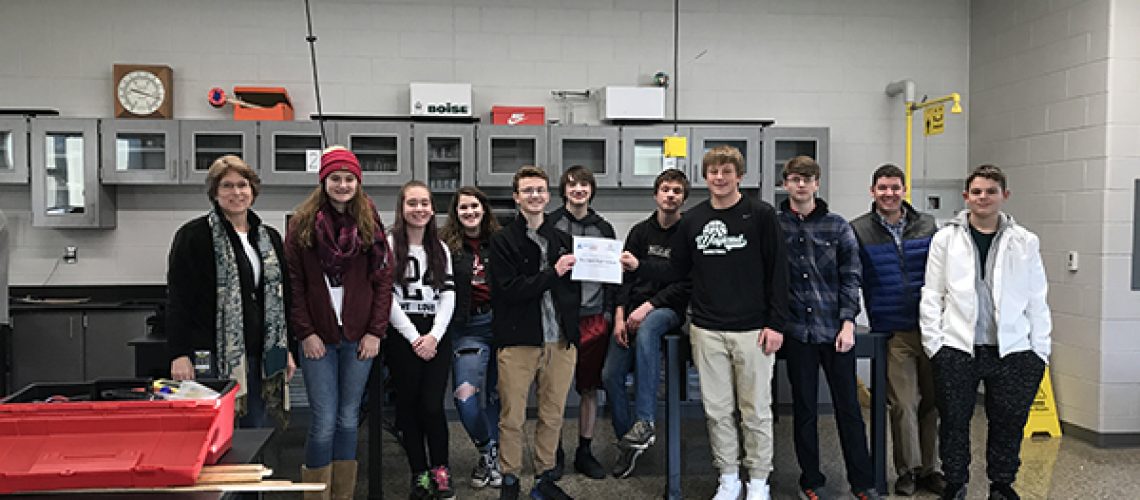Cost of materials to build 70 solar-powered model cars? Around $800.
Real-world skills learned by 150 high school students involved in the solar car project? Teamwork, problem-solving, engineering and physics concepts, renewable energy applications, design and construction methods, conservation approaches, and model car racing strategy.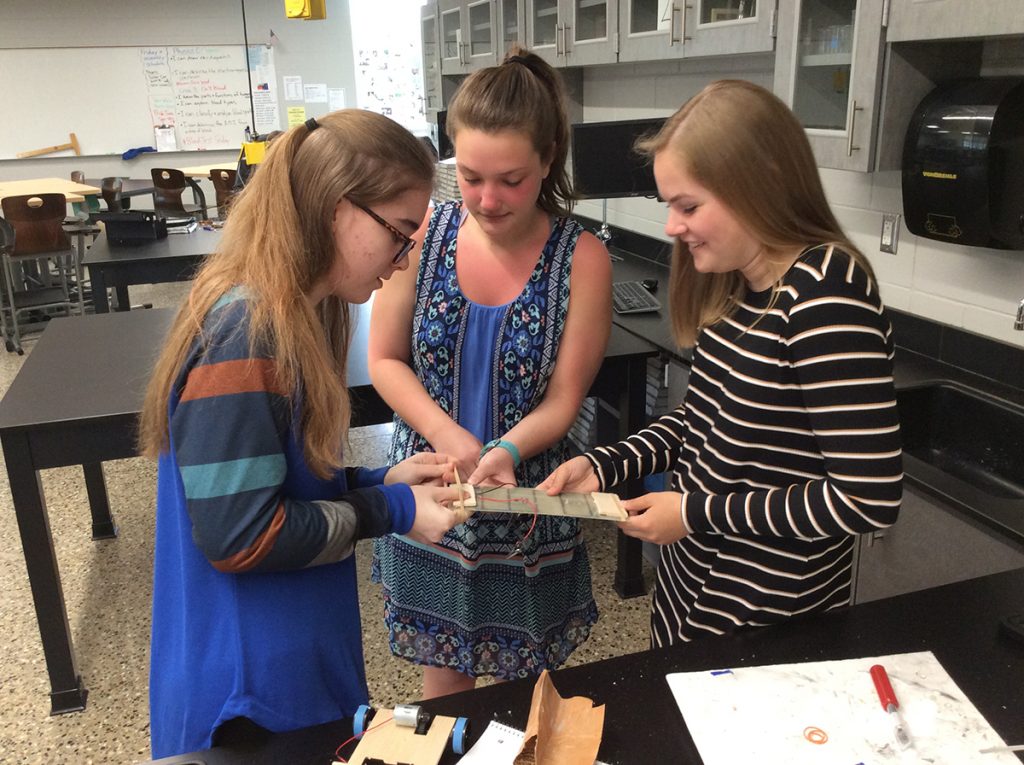
Value of the Great Lakes Energy Classroom Grant provided to fund this project? Priceless.
In 2018, teachers Barb Greenman and Dave Robinson had the idea for a solar car project that would allow participation by up to 150 high school students at Wayland Union Schools. The immediate goal of the project was to provide students in Chemistry in the Community and Physics courses with engineering and problem-solving skills while also teaching them about conservation of materials and current technology. The long-term goal was to spur interest in and mastery of skills required for the project that could lead to future careers.
The project required student teams of one to three to engineer a model solar car that ran on either battery or solar power. The process provided students with the opportunity to explore topics such as aerodynamics, renewable energy, waste/resource management, design and construction ideas, and team building. Teams demonstrated their success by racing their model solar vehicles against each other.
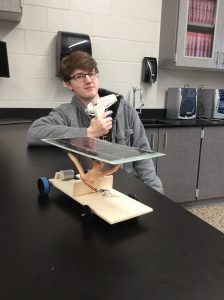 “The students were highly engaged and excited about their projects,” Greenman reported. “The excitement of applying their knowledge and skills to the real world test of racing their models against each other drove home the lessons learned during the project.”
“The students were highly engaged and excited about their projects,” Greenman reported. “The excitement of applying their knowledge and skills to the real world test of racing their models against each other drove home the lessons learned during the project.”
Taking the project’s benefits a step further, students recycled materials used for constructing the cars so that future classrooms could also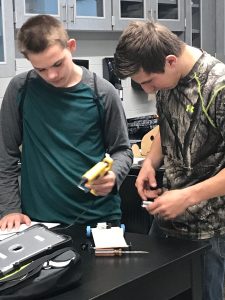 take part in similar projects.
take part in similar projects.
“The success of this program is priceless for the experience these kids had that will be used for a lifetime,” agree Greenman and Robinson.
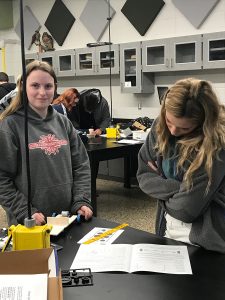 Since 2012, Great Lakes Energy Classroom Grants have funded projects in local classrooms amounting to $157,460. Applications are due Nov. 1 for the 2019-2020 school year grant cycle. The program welcomes applications from classrooms that serve students whose parents are Great Lakes Energy members. Apply online by visiting gtlakes.com and clicking on Great Lakes Energy Classroom Grants under the Community tab.
Since 2012, Great Lakes Energy Classroom Grants have funded projects in local classrooms amounting to $157,460. Applications are due Nov. 1 for the 2019-2020 school year grant cycle. The program welcomes applications from classrooms that serve students whose parents are Great Lakes Energy members. Apply online by visiting gtlakes.com and clicking on Great Lakes Energy Classroom Grants under the Community tab.

